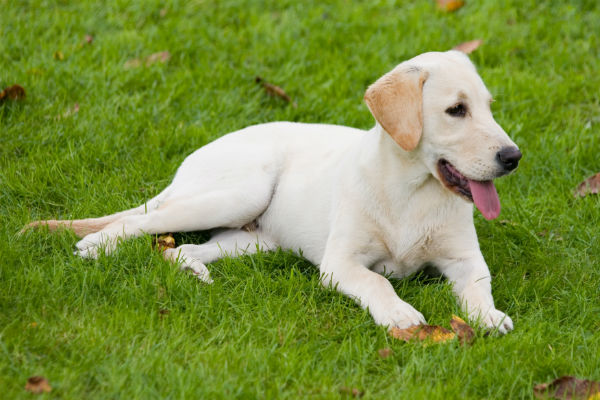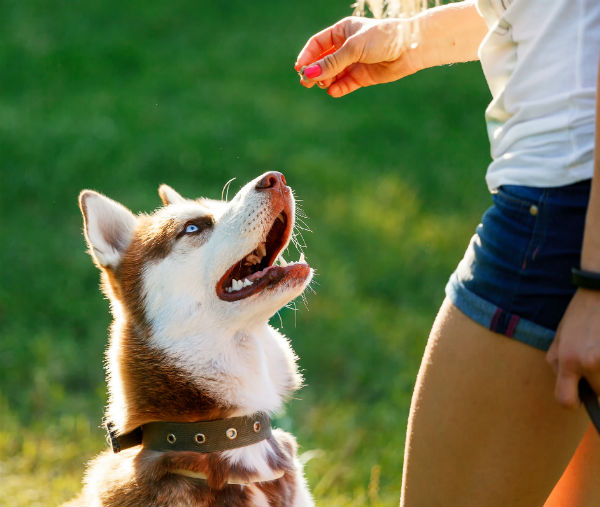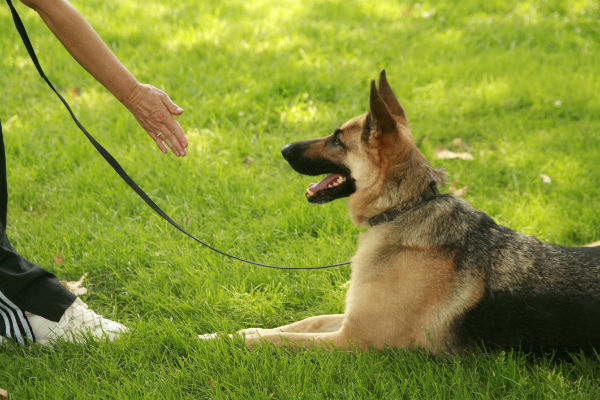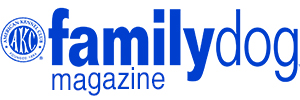To most people, training a dog begins and ends with commands and equipment. They never think that developing a relationship with their dog through training is possible, let alone critical.
But by forming a relationship with your dog through an activity like training — rather than only from cuddling on the couch or slipping him tidbits of food from the dinner table — you’ll create a strong bond that may even come in handy if your dog is in harm’s way. Ask any champion obedience handler, and she’ll likely tell you when it comes to training success, communication is key.
Let’s look at the various life stages and activities when great relationships can be formed. In each one, I’ve chosen a specific relationship-oriented goal to work on.
Puppy Stage
��

Relationship Goal: Follow the Leader
Most pet owners fall hook, line, and sinker for a puppy’s charm, so instead of becoming his partner in training, they become more of his agent, defending their young canine’s behavior by making statements like, “He isn’t biting, he’s just teething.” Or, “He’s jumping because he’s overtired; normally he wouldn’t do that.” My personal favorite is, “I won’t let him do (insert inappropriate behavior) forever, but I want him to have a little fun while he’s a puppy!”
Let me assure you that allowing such behavior will lead you to difficulty changing that behavior in the future and will also cause you to miss out on a stage of development in a dog’s life when he still thinks you’re a cool, fun leader. Adolescence is just around the corner, and that’s when puppies turn into defiant teenagers. Take advantage of a puppy’s natural desire to follow and learn, and teach him fun games rooted in impulse control.
The relationship goal that you’re aiming for at this age is teaching your puppy that everything he wants has to come through you, which makes you as valuable as the reward.
Adolescence
��

Relationship Goal: Consistency
Oh, the teenage stage! Welcome to adolescence, when there will be lots of “Why?” and “Don’t wanna” responses from your dog. Much like a human teen, dogs in this stage like to test the limits and see what they can get away with. Remaining firm on house rules and sticking to the routine will help your dog realize that defiance does him no good.
Also, there will be a day in the not-so-distant future when it just would be so much easier to relax your dog’s rules, like staying off the couch or not jumping on people, especially if he’s on a rebellious streak. But the price you pay for that momentary laissez-faire lifestyle is that your dog will then think the rules are optional. Be consistent with your teenage dog. He’ll learn that you’re unchanging in your expectations, and he’ll become consistent in his responses.
Adult Stage
��

Relationship Goal: Expanding and Strengthening Your Bond
Once your dog is an adult, the training and the games that go with it don’t stop. As a matter of fact, this is the age when the more you teach your dog, the stronger your relationship becomes.
In addition to practicing basic commands, you can take your dog’s training to the next level by teaching more advanced tricks or even taking up a sport like obedience, agility, tracking, herding, flyball, dock diving, or any of the other dog sports available.
Through training-based activities, not only will your relationship grow, but your dog will also get the physical and mental exercise that will help him be happy, healthy, and strong. And if all that sounds like it’s only beneficial to your dog, think again. Some of the many lessons I’ve learned through teaching dog training for many decades include those of friendship, love, loyalty, gratitude, patience, and humility — all are built through a strong relationship. My greatest hope is for you and your canine companion to experience the same through your special bond.

From behavior and training to health and nutrition, learn from the experts at the American Kennel Club, in��AKC Family Dog��magazine.��
��

